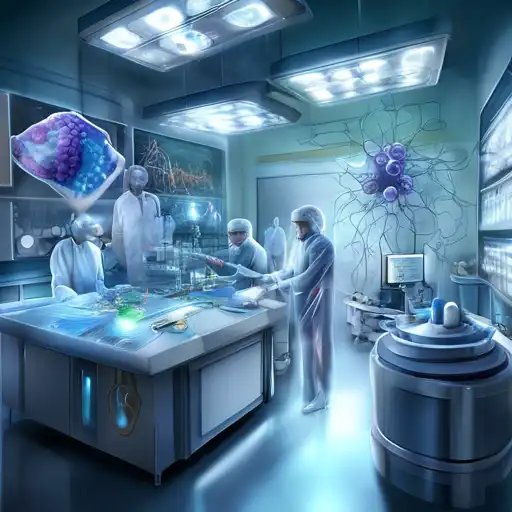Introduction to Nanotechnology in Medicine
Nanotechnology, the science of manipulating matter at the atomic and molecular scale, is set to revolutionize the medical field. With its ability to operate at the same scale as biological processes, nanotechnology offers unprecedented opportunities for diagnosis, treatment, and prevention of diseases. This article explores the groundbreaking advancements and potential of nanotechnology in medicine.
The Promise of Nanotechnology in Healthcare
Nanotechnology in medicine, often referred to as nanomedicine, involves the use of nanoparticles to deliver drugs, heat, light, or other substances to specific cells in the body. This precision targeting minimizes damage to healthy cells and maximizes the therapeutic effect, offering a new horizon in treatment methodologies.
Drug Delivery Systems
One of the most promising applications of nanotechnology is in the development of advanced drug delivery systems. Nanoparticles can be engineered to carry drugs directly to diseased cells, significantly reducing side effects and improving patient outcomes. For example, in cancer treatment, nanotechnology enables the targeted delivery of chemotherapy drugs to tumor cells, sparing the surrounding healthy tissue.
Diagnostic Tools
Nanotechnology also enhances diagnostic capabilities. Nanoscale devices can detect diseases at their earliest stages, often before symptoms appear. This early detection is crucial for conditions like cancer, where early intervention can significantly improve survival rates.
Current Breakthroughs in Nanomedicine
Recent years have seen remarkable breakthroughs in nanomedicine. Researchers have developed nanorobots capable of performing precise surgeries at the cellular level and nanoparticles that can cross the blood-brain barrier to treat neurological disorders. These innovations underscore the transformative potential of nanotechnology in healthcare.
Challenges and Ethical Considerations
Despite its promise, the integration of nanotechnology into medicine faces challenges, including regulatory hurdles, ethical concerns, and the need for further research to understand the long-term effects of nanoparticles on the human body and environment.
The Future of Nanotechnology in Medicine
The future of nanotechnology in medicine is bright, with ongoing research exploring its applications in regenerative medicine, personalized medicine, and beyond. As we continue to unlock the potential of nanomedicine, we move closer to a future where diseases can be treated more effectively and with fewer side effects.
For more insights into the future of healthcare technology, explore our articles on the future of healthcare and personalized medicine.
Conclusion
Nanotechnology in medicine represents a paradigm shift in how we approach disease treatment and prevention. With its ability to target therapy at the molecular level, nanomedicine offers hope for more effective, less invasive treatments. As research progresses, the possibilities for nanotechnology in healthcare are limitless, promising a healthier future for all.
